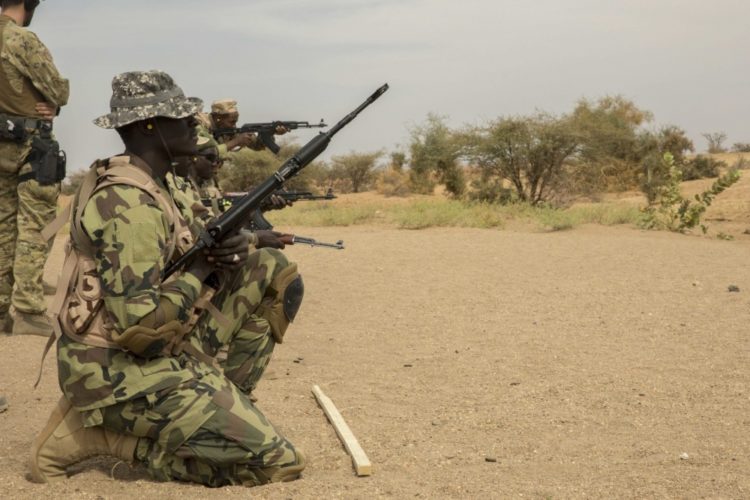France and the countries of G5 Sahel — Niger, Mali, Burkina Faso, and Mauritania — have requested that Chad, also a member of the coalition, continues to take part in it. The G5 countries also “highlighted the importance of sending a Chadian battalion to the Three-Borders area as soon as possible,” according to a joint statement issued by G5 Sahel and France after a meeting last week.
The “Three Borders” area, where Mali, Niger, and Burkina Faso meet, has suffered a tremendous amount of violence by Islamist militants that have pledged allegiance to al-Qaeda and the Islamic State. The effects of climate change have also been a factor in the violence as nomadic Fulani peoples have seen their lands disappear because of drought and overpopulation and have been drifting into other lands, taking them by force.
A misunderstanding may be at the base of the request to Chad to remain involved in the G5. Back in mid-April, after heavy fighting between Chadian military forces and Boko Haram terrorists in the Lake Chad region where 98 Chadian soldiers were killed, Chadian President Idriss Deby said, “From today, no Chadian soldier will take part in an external military operation.”
However, a statement released through the Chadian Foreign Affairs ministry said President Deby’s remarks had been misunderstood and he only meant the army would no longer conduct unilateral operations beyond its borders in the Lake Chad Basin.
“It was never a question for Chad of disengaging from the (Boko Haram) Multinational Joint Task Force or from the G5 Sahel joint force, much less from (MINUSMA),” the ministry’s statement said.
Chad’s military plays a significant role in the 5,000-strong G5 coalition military force, which is led by France. The French have been active in the Sahel since launching Operation Barkhane to counter the active and violent Jihadist insurgency in Mali in 2012.
French officials recognize the importance of Chad to the coalition. Chad’s counter-terrorism efforts have played a major part in the G5’s efforts to combat the extremism that has wracked the region. Chad’s military is among the most effective of the G5 thanks to its significant operational and combat experience.
The added factor of the coronavirus is compounding matters for the countries involved. With little oversight and government presence in the region, the jihadist insurgents have tried to take advantage of the virus to gather more support and attack isolated government outposts and towns.
Following one such attack in late March by Boko Haram terrorists that killed 98 Chadian soldiers, it was feared by many in the region that Chad would shift its priorities and focus its resources in the Lake Chad Basin. The basin is where Islamist groups are increasingly active and have the strength to attack in force.
While Boko Haram jihadists operating in Chad are a pressing concern for the government, violence in the Sahel threatens the security and stability of all the neighboring nations and could easily spread.
That is why France was so concerned about the possibility of Chad pulling back some of its support in the Sahel region.
Already have an account? Sign In
Two ways to continue to read this article.
Subscribe
$1.99
every 4 weeks
- Unlimited access to all articles
- Support independent journalism
- Ad-free reading experience
Subscribe Now
Recurring Monthly. Cancel Anytime.










COMMENTS